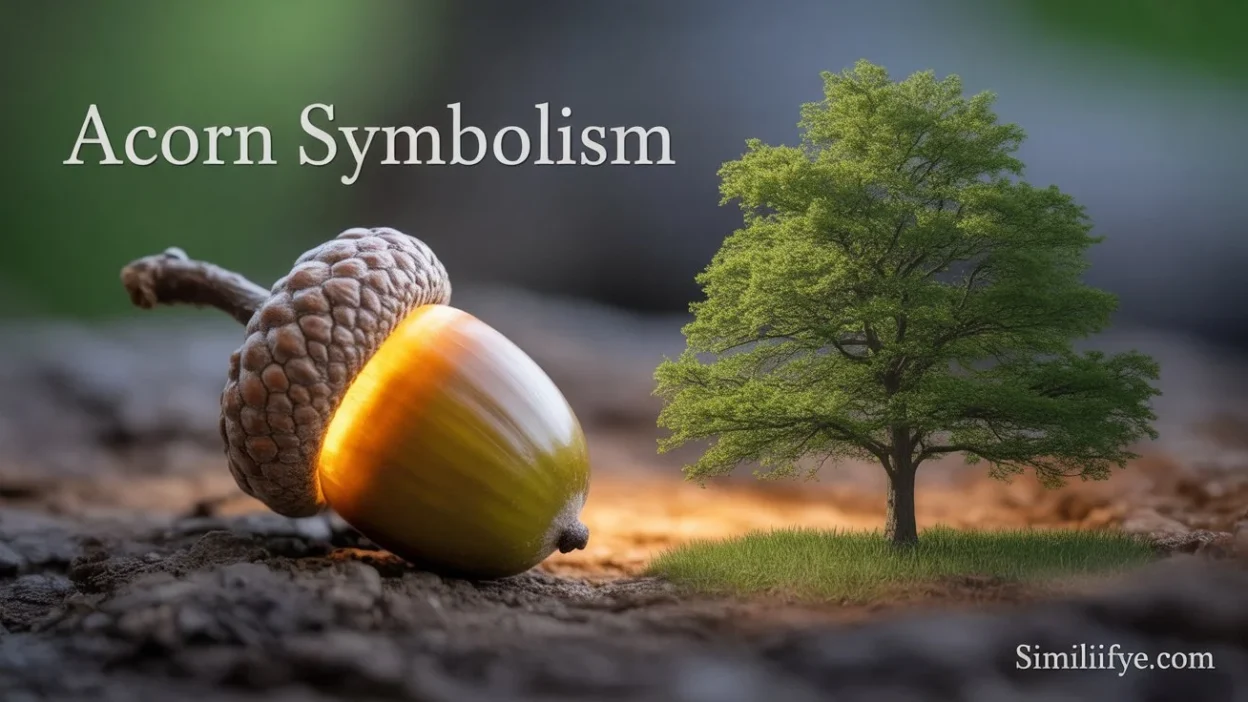Have you ever picked up a tiny acorn and wondered if it means something more?
When I first learned about Acorn Symbolism, I was surprised at how such a small seed holds such powerful lessons.
Just like you, I’ve faced times where I needed hope, growth, and strength—and the acorn reflects all of these.
It may be small, but inside it carries the potential to grow into a mighty oak tree.
That’s a reminder for both you and me: our beginnings don’t define our limits.
In this blog, I’ll share how acorns symbolize new opportunities, resilience, and personal transformation—so you can find encouragement and meaning in your own journey.
Let’s explore these hidden messages together.
Acorn Symbolism Native American
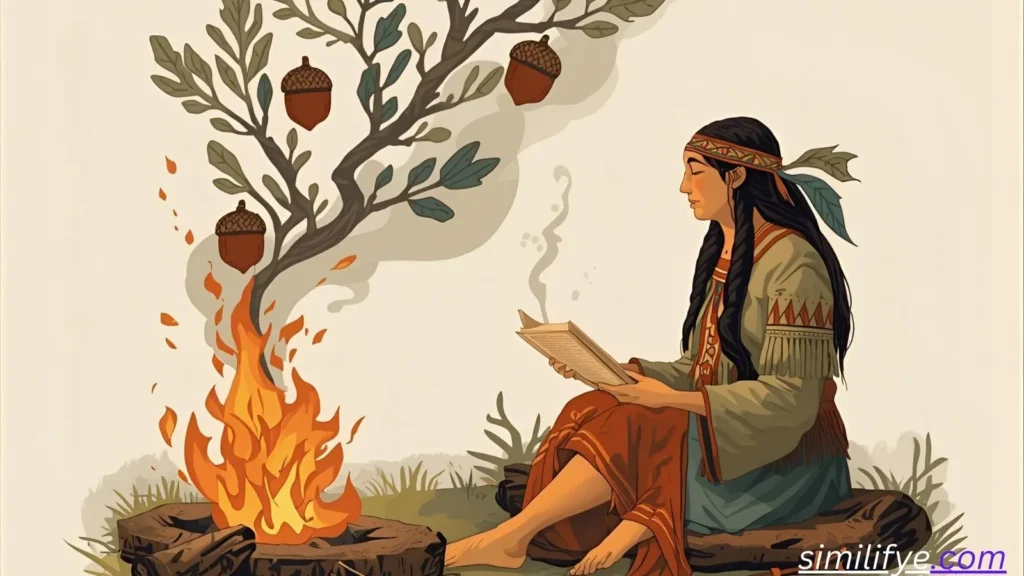
According to some cultural beliefs, the acorn was valued not just as food but as a sacred offering.Oaks produced an abundance of acorns, which were ground into flour and used to feed entire communities. Because of this, the acorn became a symbol of survival, sustenance, and gratitude.
In certain traditions, the acorn was used in ceremonies, honoring the oak as a tree of protection and wisdom. Elders taught that just as the acorn transforms into a towering oak, people too can grow spiritually strong if they remain patient and grounded.
Acorn Symbolism Bible
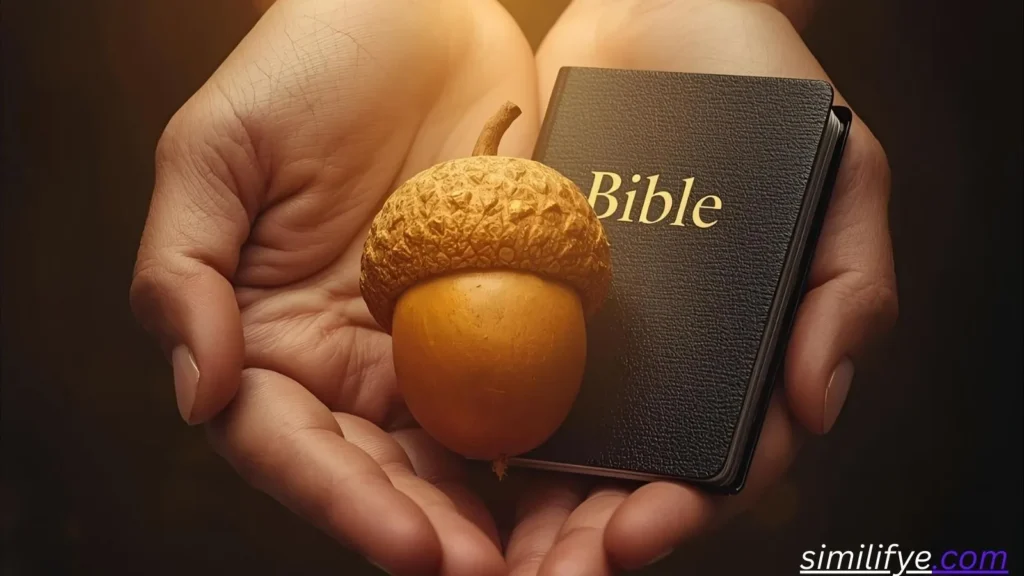
In the Bible, the oak tree is often mentioned as a place of worship and divine encounters. While the word “acorn” itself is not specifically highlighted, its connection to the oak makes it a symbol of faith, new beginnings, and strength rooted in God.
The acorn can be seen as a reminder of Matthew 17:20, where even a small seed of faith can move mountains. Just as the acorn contains the potential of a massive oak, our faith—even if tiny—holds unlimited power when nurtured.
Acorn Symbolism Celtic
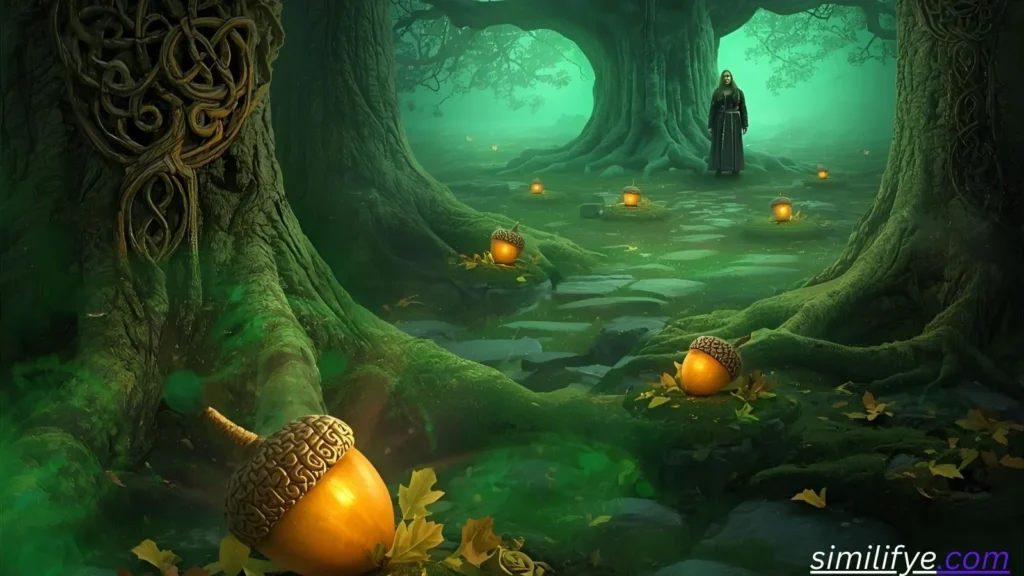
For the Celts, the oak tree was sacred, and so was its seed. Druids believed that oaks connected heaven and earth, serving as a bridge between worlds. Naturally, the acorn represented fertility, rebirth, and magical potential.
Celtic warriors sometimes carried acorns as charms for strength, luck, and courage in battle. The idea was simple: if a small acorn could become a mighty oak, then even a small effort or brave heart could achieve greatness.
Acorn Symbolism Meaning
At its core, the acorn is a symbol of potential, growth, and patience. It reminds us that great things often start small. Life may hand us humble beginnings, but with time, perseverance, and nurturing, we can grow into something extraordinary.
It also represents resilience. Acorns must endure harsh winters before sprouting. Similarly, our struggles shape us into stronger versions of ourselves.
Acorn Symbolism Spiritual
Spiritually, the acorn is a reminder of divine timing. You cannot rush its growth; it must rest, germinate, and push through the soil in its own season. This reflects our spiritual journeys—we must trust the process, even when results are unseen.
Meditating with an acorn or keeping one on an altar can symbolize patience, abundance, and spiritual awakening. It whispers: “Everything you need is already inside you.”
Acorn Symbolism Victorian

In the Victorian era, the acorn became a symbol of prosperity and good fortune. People carried small acorn charms for protection against illness and misfortune. Jewelry featuring acorns was popular, representing strength in love and endurance through life’s trials.
Victorians also saw acorns as tokens of youth and vitality, believing they carried the energy of eternal growth.
Acorn Symbolism Spirituality
Within broader spirituality, the acorn is seen as a universal archetype of transformation. It reflects cycles of death and rebirth, teaching us that endings are never final—they are beginnings in disguise.
Many modern spiritual practitioners see the acorn as a sign to trust your inner strength, embrace patience, and believe in unseen potential. It’s often used in manifestation rituals as a token of what is yet to grow.
Acorn Symbolism Christian
In Christianity, the acorn reminds believers of God’s promise of growth and abundance. It is often associated with scriptures about planting seeds of faith, kindness, and love.
Christian writers use the acorn to symbolize humility and greatness—a tiny seed that becomes a majestic oak, just as small acts of faith can grow into powerful spiritual legacies.
Acorn Symbolism Japan
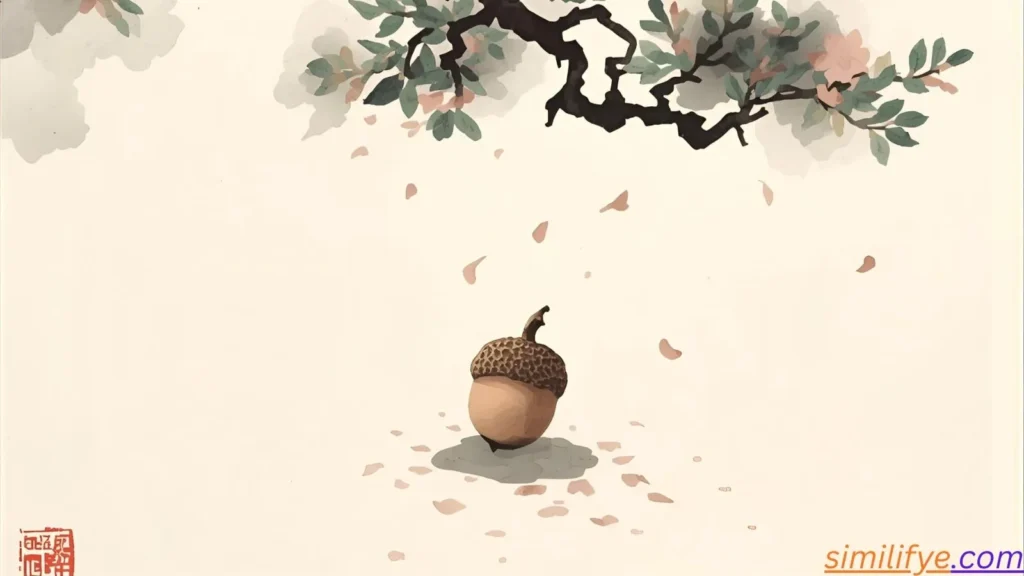
In Japan, acorns (called donguri) are commonly associated with childhood, simplicity, and playfulness, as children often collect and play with them. Spiritually, they symbolize innocence, potential, and the joy of small things.
Japanese folklore also connects acorns to longevity and patience, reflecting the enduring strength of the oak tree in Shinto tradition.
Acorn Symbolism UK

In the United Kingdom, the acorn has long been a national symbol of strength and heritage. The oak tree is the country’s national tree, and its seed carries the same importance.
Historically, acorns were associated with royalty, endurance, and victory, particularly in times of war. Today, many British coins and emblems still use acorn imagery, symbolizing growth, prosperity, and hope for the future.
Real-Life Scenarios of Acorn Symbolism
🌳 Scenario 1: A woman struggling with infertility finds an acorn on her morning walk. She takes it as a sign of fertility and hope, reminding her that new beginnings are possible.
🌳 Scenario 2: A young man facing career uncertainty carries an acorn in his pocket. Each time he feels lost, it reminds him of his inner strength and potential waiting to unfold.
🌳 Scenario 3: An elder plants an acorn with a grandchild, teaching that true legacy comes from planting seeds for future generations to enjoy.
FAQs
1. What does an acorn symbolize spiritually?
The acorn symbolizes potential, patience, spiritual growth, and divine timing. It’s a reminder to trust the process of life.
2. Why is the acorn considered lucky?
Historically, people carried acorns for protection, fertility, and good fortune, believing they held the power of the mighty oak.
3. What does the acorn mean in dreams?
Dreaming of acorns often points to hidden potential, upcoming growth, or opportunities that will take time to mature.
4. How do I use acorns in spirituality?
You can place acorns on an altar, carry them as charms, or use them in manifestation rituals to symbolize growth and abundance.
5. What does the acorn teach us about life?
It teaches that big things start small, growth takes time, and true strength comes through patience and resilience.
Conclusion
When you hold an acorn, you’re not just holding a seed—you’re holding a story of faith, strength, and potential.
Across cultures and beliefs, the acorn teaches us the same lesson: never underestimate small beginnings.
Life’s struggles may feel overwhelming, but like the acorn, your journey is full of hidden power waiting to be revealed.
Trust your timing, stay grounded, and remember—you, too, carry the strength of the mighty oak within you.

Hi, I’m Brandon Sanderson, an SEO expert and creative content strategist.
I help brands grow organically through smart keyword research and engaging storytelling.
Through Similifye.com, I share insights that help readers level up their content and search visibility.
